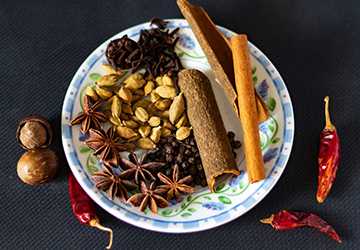How to Prevent Common Seasonal Illnesses
As the seasons change, so does our body's susceptibility to various diseases. Whether it’s the cold days of winter, spring when flowers are blooming, hot summer days, or fall with new leaves—each season brings different health challenges. This article explores the most common seasonal illnesses and discusses effective strategies to prevent them. By actively managing your health, you can make the most of each season.

1. Winter pain
Colder temperatures and shorter days in winter can affect our health. The most common seasonal illnesses during this time include colds, flu, and seasonal affective disorder (SAD). How to prevent:
Boost your immune system: One of the best ways to prevent colds and flu is to boost your immune system. Get enough vitamins, especially vitamin C, through a balanced diet. Antioxidant-rich foods such as citrus fruits, green leafy vegetables, and berries can significantly boost immunity.
Hand Hygiene: Frequent hand washing with soap and warm water is essential to prevent the spread of germs. Carry hand sanitizer with you when you go out. Viruses can survive on surfaces for hours or even days. Therefore, be vigilant in public places.
Stay active: Regular exercise helps maintain a strong immune system. Don't let the cold weather get to you; stay active with indoor activities like yoga, dancing, or swimming.
Vaccinations: Consider getting an annual flu shot. Getting vaccinated can significantly reduce your risk of getting the flu and help protect those around you.
2. Spring Revival
Spring brings revival and growth, but also an increased risk of seasonal allergies and tick-borne illnesses. Here's how you can enjoy the season without falling victim to common spring illnesses:
Allergy Management: Pollen, grass, and blooming flowers can trigger allergies in many people. To relieve symptoms, close windows, use an air purifier, and clean your living space regularly.
Over-the-counter antihistamines can also relieve symptoms. Tick-borne disease prevention: Spring is prime season for ticks, which can transmit Lyme disease. When outdoors, wear long sleeves and long pants and use tick repellent. After spending time outdoors, check your body thoroughly for ticks and remove any ticks you find immediately.
Gardening Safety: If you are a gardening enthusiast, take precautions to avoid injury. Wear gloves to protect your hands and practice proper lifting techniques to avoid back strain. three.
3. Sizzling Summer
Summer is synonymous with outdoor fun, but it’s also a time of increased heat-related illness, sunburn, and food poisoning. How to beat the heat and stay healthy:
Stay hydrated: It's easy to become dehydrated in hot weather. Drink plenty of water and avoid excessive caffeine and alcohol, as these can cause further dehydration. Remember to take regular breaks in the shade.
Sun protection: Sunburn can cause permanent skin damage and increase the risk of skin cancer. Protect your skin and eyes from harmful UV rays by using a high SPF sunscreen and wearing a wide-brimmed hat and sunglasses. It is important for long-term skin health and cancer prevention.
Food safety: Picnics and barbecues are summer staples, but they can also be breeding grounds for foodborne illness. Keep perishable foods cool and practice good hand hygiene when preparing and serving food. Avoid exposing food to sunlight for extended periods of time.
Heat-Related Illnesses: Heat exhaustion and heat stroke are serious health problems during the summer. On the hottest days, wear lightweight, breathable clothing and seek shade. If you feel dizzy or tired, move to a cooler area immediately and drink water.
4. Things to note in autumn

Autumn, with its beautiful foliage and fresh air, also brings with it health concerns. Seasonal illnesses like colds, flu, and allergies are common. Here's how to stay healthy as your leaves change color:
Flu Vaccine: Fall marks the beginning of flu season. Get your flu shot as early as possible to protect yourself and those around you. The vaccine is usually updated annually to target the most common strains of the flu virus.
Allergy Management: Ragweed and mold spores are common fall allergens. If necessary, take an antihistamine and keep windows closed. Raking leaves may trigger allergens. Therefore, wear a mask and gloves when gardening.
Stay active: Even if the weather gets cooler, keep up your exercise routine. Hiking, walking, admiring the beautiful autumn scenery, and staying healthy.
5. Healthy practices throughout the year
While seasonal preventive measures are important, it is equally important to maintain year-round practices that support overall health. Here are some general tips for staying in top shape year-round:
Eat a balanced diet: Nutritious foods provide important vitamins and minerals to support your body's optimal performance. Bulk up your meals with plenty of fruits, vegetables, lean proteins, and whole grains.
Get regular exercise: 150 minutes of moderate-intensity aerobic exercise or 75 minutes of vigorous-intensity exercise each week. Through physical activity, you not only improve your physical health but also your mental health. Get enough sleep: Sleep is your body’s time to regenerate and repair. Get 7-9 hours of restful sleep each night to strengthen your immune system and improve your overall health.
Stress Management: Chronic stress can weaken your immune system. Incorporate stress-reducing techniques like meditation, deep breathing, or mindfulness into your daily life to manage stress and effectively support your immune system.
Hygiene: Good hygiene habits, such as regular hand washing and proper dental care, help prevent the spread of disease and maintain overall health.
Conclusion
Each season brings unique challenges and health concerns, but with the right precautions, you can enjoy every aspect of the year. There are strategies to prevent common seasonal illnesses, from boosting your immune system in the winter to staying hydrated in the summer to treating allergies in the spring and fall.Remember, maintaining a healthy lifestyle year-round is the key to overall health. By following these tips, you can enjoy each season with confidence and know that you're taking the necessary steps to protect your health.







